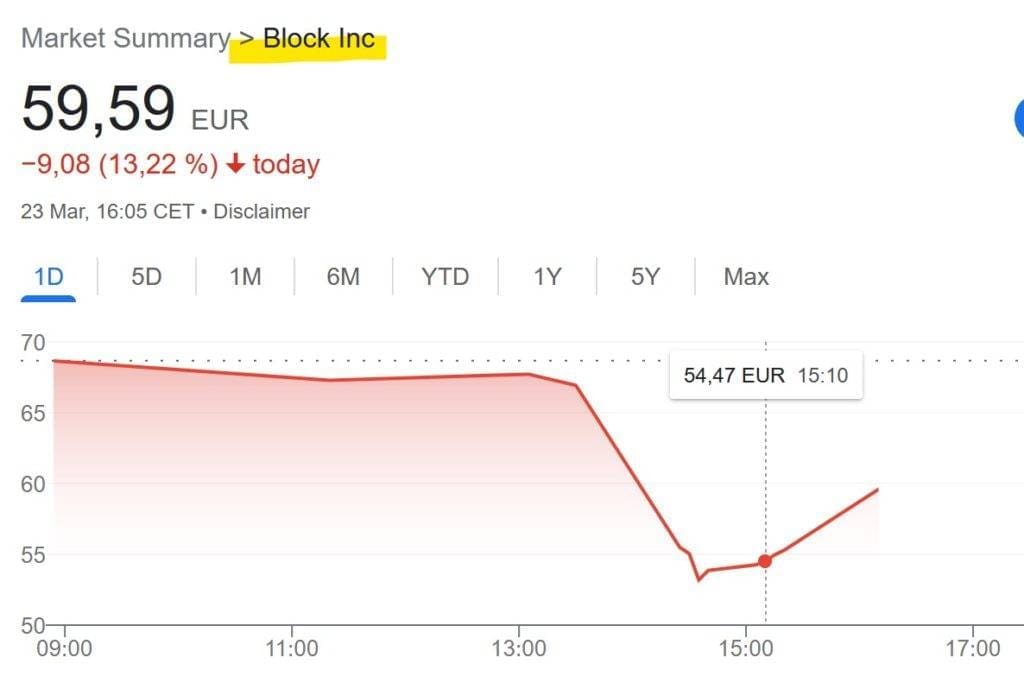Block (previouslySquare) is an NYSE-listed $44 billion market cap company established and controlled by Twitter co-founder Jack Dorsey. After a two-year investigation, short-seller Hindenburg Research released a disastrous report, accusing Block of systematically facilitating fraud. Block shares plunged 19% but recovered after the initial shock. Hindenburg described Block’s internal systems as a ”‘Wild West’ approach to compliance.”
Facilitating Unbanked Fraudsters

Block claims to have developed a frictionless and magical financial technology to empower the “unbanked” and the “underbanked.” However, the report alleges that unbanked customers were involved in criminal or illicit activity. The “magic” behind Block’s business has not been disruptive innovation but rather the company’s willingness to facilitate fraud against consumers, Hindenburg claims.
Even when Block users were caught engaging in fraud, Block blacklisted the account but did not ban the user. It allowed those users to open new accounts. Blacklisted accounts were regularly associated with dozens or hundreds of other active accounts suspected of fraud. Beyond facilitating payments for criminal activity, the platform has been overrun with scam accounts and fake users, the report claims.
Covid19 Boost And Cash App
The COVID-19 pandemic was a real booster for Block‘s Cash App (website) with allegedly 51 million users.” The “anti-compliance free-for-all” payment app facilitated a massive wave of government COVID-19 relief payments. CEO Jack Dorsey used his Twitter to inform users that they could get government payments through Cash App “immediately” with “no bank account needed” due to its frictionless technology.
Within weeks of Cash App accounts receiving their first government payments, states sought to claw back suspected fraudulent payments. Massachusetts sought to claw back over 69,000 unemployment payments from Cash App accounts just four months into the pandemic. Block had obvious compliance lapses that made fraud easy, such as permitting single accounts to receive unemployment payments on behalf of multiple individuals from various states and ineffective address verification.
The Covid-19 business provided a sharp one-time increase to Block’s stock, which rose 639% in 18 months during the pandemic.
Leading Sex Trafficking App
Block‘s Cash App was also cited “by far” as the top app used in reported U.S. sex trafficking, according to a leading non-profit organization. Multiple Department of Justice complaints outline how Cash App has been used to facilitate sex trafficking, including the sex trafficking of minors.
The payment company allegedly dressed up predatory loans and fees and misled investors with inflated metrics.
Hindenburg also alleged that Cash App’s compliance programs were deficient. Up to 35% of Cash App’s revenue is derived from interchange fees, Hindenburg alleged. That’s around $892 million in revenue, which the short seller said should be capped by law.
Block allegedly “wildly overstated” its genuine user counts and understated customer acquisition costs. Former employees estimated that 40%-75% of the accounts they reviewed were fake, involved in fraud, or were additional accounts tied to a single individual.
“In sum, we think Block has misled investors on key metrics, and embraced predatory offerings and compliance worst-practices in order to fuel growth and profit from facilitation of fraud against consumers and the government,” Hindenburg wrote.
Hindenburg Research report
Personal Enrichment
Hindenburg Research claims that Jack Dorsey and his co-founder James “Jim” McKelvey sold over $1 billion of stock during the pandemic. Other executives, including CFO Amrita Ahuja and the lead manager for Cash App Brian Grassadonia, also dumped millions of dollars in stock.
